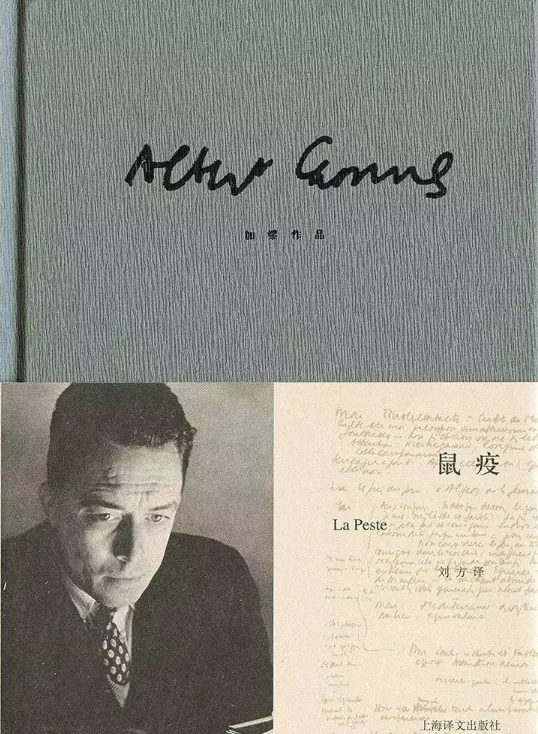Because of the impact of the epidemic, the book was deliberately searched. Written by the French writer Albert Camus, the Plague best reflects the author's view of society at the time.

The author does not simply use the "plague" to reflect the true face of society, but uses the group portraits of the characters in the book to open the curtain of the author's understanding of society.
Novels usually set a philosophical question as the central tone, there are discussions of science and human nature, there are dissection of social class contradictions, there are explanations for the existence of individual problems, and so on.
"Plague" focuses on the question of what choices individuals make and how to choose in the face of the scourge that society as a whole cannot avoid.
The contradictions set in the book are like the contradictions we face in the prevention and control of the new crown epidemic: the municipal government has adopted compulsory lockdown measures to control the plague, and people have panicked; they have set up rules that only enter and leave, in order to embrace their loved ones and get together with their families, they risk contracting the plague to go to the city; but they ignore the responsibility for social obligations while realizing their personal emotional value.
Sneaking into the city to achieve emotional needs in the book is the same as avoiding road inspections in reality and taking actions such as climbing mountains, jumping mountains, and crossing rivers. Their noble impulses for love and affection are based on the abandonment of social obligations.
There is a passage in the book: When the plague spreads, once isolated, it means that the heavens and people will never be separated, so the patient's family is isolated. In the practice of epidemic prevention and control in the mainland, we have never encountered such a situation, but under the concept of "death is also dead at home", how should we judge it?
It is true that under such a human expression, it is a disregard for public health security.
Is human expression and public safety more important? The author throws up this question in the book, but does not give the reader an answer.
In these two days, the epidemic broke out again in many parts of the mainland, and the family will take the initiative to report to the community and send it to isolation. This practice has been praised by netizens and recognized by relatives. I think that the questions that are not explained in the book have been answered by ordinary people in the post-pandemic era.
The philosophical tone of making people think about the theme of choice needs to be reflected in the portrayal of characters.
Someone asked me what exactly "Plague" was about? In fact, it was just a plague that suddenly came to a city and left a few months later.
The main line of the novel is very simple, and the clear characters in it are the finishing touches.
Dr. Rieux, his wife and mother, Tharu the Foreigner, Gran the Civil Servant, Journalist Lambert, Priest Panaru, etc.
When the foreigner Taru suggests forming a team to fight the plague, the questions and answers between the doctors and the doctors are the process of the doctor's self-discovery, and the reader's participation in the choice of human nature and the process of self-belief exploration.
There is also a paragraph that takes the same artistic technique. Lambert, a reporter who desperately wants to escape from the city, chose to give up enjoying love in the end and stayed behind to join the "volunteer epidemic prevention team". At this time, Lambert and Tarou had a dialogue, this time it was Lambert who used rhetorical questions to awaken Tarou's intrinsic values.
The author has repeatedly adopted the writing technique of rhetorical dialogue to awaken the self-consciousness of both parties involved, and at the same time allow readers to participate in the dialogue and discussion between the characters, and jointly find answers to multiple choice questions.
The connotation of "Plague" extends from the individual's choice of society to the individual's expectation of the future when faced with irresistible problems.
Introduction in the preface: The author hopes to depict in the form of an allegory the "age of terror" in which the Nazis devoured the lives of millions of people like a plague germ.
The author lived in an era when France was occupied by the German army, and the French, including the author, were trapped in the city by the "plague" and lived like prisoners like citizens in the book.
The inner meaning of "Plague" is not only that the author reflects the survival of the fascist captivity in a symbolic way, but also the disapproval of reality and the understanding of the loneliness of life.
In the context of World War II, the author constantly thinks between "survival" and "existence", and comments to himself: "In the face of the same absurd survival, although everyone's views are different, from the depths of the day, there are similarities." ”
The connotation of the author's "plague" can continue to expand, symbolizing all the existential dilemmas faced by human beings, such as wars, epidemics, natural disasters and so on. Because they have one thing in common: the fate of the individual and the fate of the group are closely linked, and they face the uncertainty of the future together, and everyone is desperate and expectant.
While describing the absurd survival of human beings in "Plague", the author gives a positive belief that when faced with the dilemma of survival, the expectation that supports survival is this human tenderness. In the end, the author discovers that the answer to the question of "where is the way out for mankind" that he has sought so painstakingly is in the topic of humanitarianism.